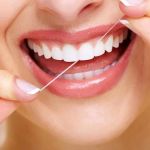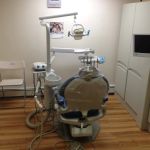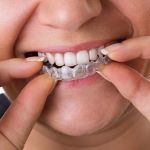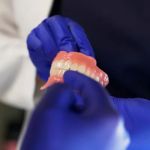Dry mouth, medically known as xerostomia, is a condition experienced by many individuals across the United States, affecting their daily comfort and oral health. Essentially, dry mouth results from an inadequate production of saliva, which is vital for mouth lubrication, digestion, and oral hygiene. This condition can arise from various factors, including medication side effects, systemic health issues like Sjögren’s syndrome or diabetes, and even lifestyle choices. As the impact of dry mouth becomes more understood, it is crucial to explore effective treatments available today for managing and alleviating its symptoms.
1. Hydration and Humidification
One of the simplest yet most effective treatments for dry mouth is ensuring adequate hydration. Drinking water frequently throughout the day can help maintain saliva production. For individuals with chronic dry mouth, setting a consistent schedule for water intake can provide consistent relief. In addition to drinking water, using a humidifier, especially during sleep, can help keep the surrounding air moist, reducing the sensation of dryness in the mouth. According to a study by the International Dental Journal, individuals who maintain hydrated environments reported significant improvements in dry mouth symptoms. The use of personal misting fans or oral hydrating liquids can also offer transient relief by boosting moisture levels in the mouth.
2. Saliva Substitutes and Stimulants
Saliva substitutes and stimulants are another effective approach to managing dry mouth syndrome. Saliva substitutes, often available as over-the-counter sprays and gels, aim to mimic the natural properties of saliva, providing immediate lubrication. Products like Biotene and XyliMelts have been well-received by patients. Saliva stimulants, on the other hand, focus on enhancing the natural production of saliva through foods, chewing gums, or lozenges that contain xylitol or other agents prompting salivary gland activity. An article published in the Journal of Dental Research suggests that xylitol-based gums significantly improve saliva flow, thus mitigating the discomfort associated with dry mouth.
3. Medications and Medical Treatments
For severe cases of dry mouth unresponsive to lifestyle changes or over-the-counter products, professional medical treatments may be necessary. Prescription medications like Pilocarpine (Salagen) and Cevimeline (Evoxac) are commonly used to stimulate saliva production. These medications act on the receptors in salivary glands, promoting the natural secretion of saliva. Moreover, recent advancements in biotechnology have introduced treatments like sialogogues, which specifically target the molecular pathways responsible for saliva secretion. Before starting any medication, it is essential to consult with a healthcare professional to understand the potential side effects and ensure the treatment aligns well with the individual's overall health condition.
4. Dietary Adjustments and Lifestyle Modifications
Adjusting one’s diet and making specific lifestyle changes can be impactful in managing dry mouth syndrome. Avoiding caffeine, alcohol, and tobacco, which are known to exacerbate dry mouth symptoms, can lead to noticeable improvements. Instead, incorporating moisture-rich foods such as cucumber, celery, and melon can aid in alleviating dryness. Additionally, discussing with a dietitian to identify any nutritional gaps might help tailor a diet that supports oral health. Routine oral hygiene, including brushing with fluoride toothpaste and using alcohol-free mouthwashes, is also critical in preventing cavities and maintaining oral health amidst dry mouth challenges.
5. Seeking Professional Dental Care
Regular dental check-ups are integral for individuals dealing with dry mouth, as they can aid in identifying and mitigating oral health issues caused by reduced saliva flow, such as tooth decay or gum disease. Dental professionals can provide personalized advice and treatments, such as specialized fluoride treatments, sealants, and professional cleaning routines tailored for dry mouth suffers. Clinics like Dentistry Toothtruth offer comprehensive care plans focusing on the unique needs of those suffering from xerostomia, ensuring they receive the necessary support and guidance to manage their condition effectively. By maintaining an ongoing relationship with a dental care provider, you can achieve sustainable oral health despite the challenges of dry mouth syndrome.
In summary, managing dry mouth involves a combination of hydration, saliva substitutes and stimulants, medical interventions, dietary changes, and professional dental care. Each individual’s experience with dry mouth syndrome can vary, thus requiring a personalized treatment approach. By staying informed about available treatment options and consulting healthcare professionals, individuals can effectively alleviate and control dry mouth symptoms. For those seeking to improve their oral health and comfort, taking proactive steps through the strategies discussed can significantly enhance daily life and overall wellbeing.

 Lincoln Commons Dental Associates PA5.0 (1 review)
Lincoln Commons Dental Associates PA5.0 (1 review) Midtown Dental4.0 (68 review)
Midtown Dental4.0 (68 review) Nanuet Family Dentistry: Dr. Srinivasa5.0 (2 review)
Nanuet Family Dentistry: Dr. Srinivasa5.0 (2 review) Gentle Dental Service4.0 (113 review)
Gentle Dental Service4.0 (113 review) Aspen Dental - Acworth, GA4.0 (366 review)
Aspen Dental - Acworth, GA4.0 (366 review) The Art of Dental Wellness5.0 (127 review)
The Art of Dental Wellness5.0 (127 review) The Importance of Oral Health Education During Pregnancy for a Healthy Pregnancy
The Importance of Oral Health Education During Pregnancy for a Healthy Pregnancy Best Tips for Brushing Your Teeth Properly for Healthy Gums: Essential Techniques for Oral Health
Best Tips for Brushing Your Teeth Properly for Healthy Gums: Essential Techniques for Oral Health Why Skipping Dental Checkups Can Lead to Bigger Oral Health Problems
Why Skipping Dental Checkups Can Lead to Bigger Oral Health Problems Advantages of Porcelain Dental Restorations
Advantages of Porcelain Dental Restorations How Can Diabetes Cause Tooth and Gum Problems? Preventing and Managing Oral Health Issues
How Can Diabetes Cause Tooth and Gum Problems? Preventing and Managing Oral Health Issues Healthy Habits for Promoting Good Oral Health and Hygiene: Tips for a Healthy Smile
Healthy Habits for Promoting Good Oral Health and Hygiene: Tips for a Healthy Smile